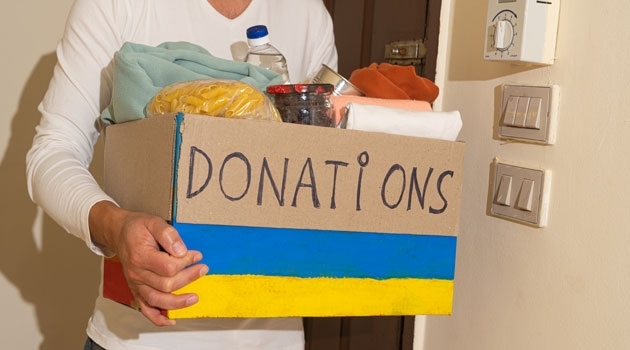Mass exodus calls for many health actions
What health measures need implementing for people fleeing from the war in Ukraine? Soorej Jose Puthoopparambil, researcher and Senior Lecturer at Uppsala University’s Department of Women's and Children's Health, says there is a great deal to be done – from COVID-19 vaccinations to schooling, and also support for parents and staff to enable them, in turn, to provide support.
Soorej Jose Puthoopparambil is to head the Department’s new WHO Collaborating Centre on Migration and Health Data and Evidence, to be inaugurated in May. In the assessment of what health measures are needed, it is important to consider where the migrants come from, what their pre-war situation was like and how they reached Sweden or another country, he thinks.
“When it comes to children and adults from Ukraine, we need to think about vaccination against COVID-19 and other diseases, since countries vary in their vaccination coverage. About 35 per cent of Ukraine’s population have had two doses, while rates in neighbouring Poland and Hungary are some 60 per cent or higher. A mass exodus is under way and there is a risk of the infection spreading.”
Uppsala University’s Department of Women's and
Children's Health. Photo: Mikael Wallerstedt
At the same time, one should think about why the vaccination rate is so low. It is not just a matter of logistics; social and cultural factors, and trust in authorities, are also involved. Implementation of major mandatory health investigations is not always supported by research and can have a negative impact if people lose faith in the new country’s authorities.
“Just because people are offered vaccinations, it doesn’t mean everyone will accept. So it's not that simple – it’s a balancing act. Ukraine is a country where there are problems associated with childhood vaccination as well, so it's about other diseases too, not just covid.”
Planning health actions is hard
It is still difficult to know how many of the people fleeing from Ukraine will stay in neighbouring countries such as Moldova, Romania, Poland, Slovakia and Hungary, and how many will find their way elsewhere. This makes it hard to plan health interventions.
“At present, we’re working in the short term and what we do varies from one country to another. The fundamentals are vaccination, support for mental health, normalisation and helping children and adults to process their experiences in various ways – maybe by drawing or singing, maybe through counselling,”
Most people fleeing from Ukraine are women and children, so health services in the receiving countries must be prepared for raised demand for care in areas including sexual and reproductive health, child health and mental health.
Perhaps the most important measure for the children’s health is for them to be able to attend school. Many of these children's lives have been transformed overnight. They may have seen their homes bombed and needed to part from their fathers.
“School is hugely important during a crisis like this. Trying to normalise their situation as far as possible is a must. It’s not that easy, but school is something normal for most children, so providing schooling for them is vital,” Puthoopparambil says.
Asking what they need
He emphasises that while supporting children is essential, it is equally crucial to support parents in crisis situations so that they, in turn, can help their children.
Many private individuals have become involved and are offering accommodation. Is there anything in particular they should consider?
“Don’t forget the Internet, so that they can stay in touch with family members who are still in Ukraine. Remember that the everyday things that matter to us are important to them as well. Think about asking them what they want. A classic problem in humanitarian aid is that we give people what we think they need, rather than what they actually need."
Support for would-be supporters
Private individuals wishing to help may themselves need support at times. Sometimes, they do not really know what they are getting into, and perhaps become more affected than they anticipated. Offering a home is one thing, but listening to and supporting the new lodgers is something else altogether. It is vital to learn more about to how to respond to someone in a crisis situation.
“Some people have a need to tell others what they are going through – it’s a coping mechanism. But are you the right person to sit and listen? Will it help or not? Goodwill is a great start, but think about what you can and can’t do, and if you can’t, go to the health centre or call a local helpline.”
For the authorities, supporting people who are working to support the refugees is key, now that multiple vital functions in society are under severe pressure.
“Some activities that were previously discontinued must now be re-established, and schools are having to take in many new pupils. It’s important to support care staff, teachers and local government workers alike. That’s the best way to support the new arrivals – by providing support for the supporters,” Puthoopparambil says.
Annica Hulth
WHO Centre for Migration and Health
International maternal and child health at Uppsala University’s Department of Women's and Children's Health has been appointed as a WHO Collaborating Centre for Migration and Health – WHO collaborating centre on Migration and Health Data and evidence. It is the first Swedish institution and fourth worldwide in this category.

